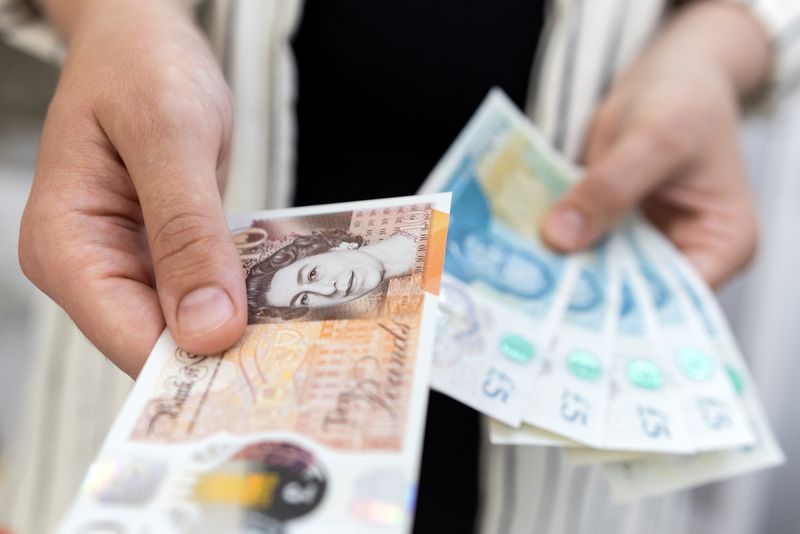Here are some facts about the British currency:
1/ PERFORMANCE THIS YEAR
The pound is trading around $1.27, up 23% from 2022’s record low. It is down a fraction against the dollar this year, but that’s a better performance than other developed market currencies.
The recovery has been underpinned by a better-than-feared economic performance, expectations that the Bank of England will be cautious in cutting rates and hopes that a big win for the opposition Labour Party in the July 4 election will usher in greater political and economic stability.
Sterling is also near a two-year peak against the euro, around 84 pence.
2/ ROLE IN FX MARKETS
Sterling is the world’s fourth most actively traded currency after the dollar, euro and yen. That’s significant in a global currency market with a turnover of over $7.5 trillion a day and reflects London’s role as a major financial centre.
It was bought or sold in about 13% of global foreign exchange transactions in April 2022, compared with 15% in 1989, the Bank for International Settlements’ (BIS) latest triennial survey shows.
The UK is also the most important FX trading location globally with a 38% share of global turnover, the BIS estimates.
3/ PAYMENTS AND RESERVES
It’s not just financial markets that use sterling to trade.
The pound is in third place when currencies are ranked by their share of global payments by value, Swift data shows.
It accounts for 6.84% of global payments compared to roughly 47% for the dollar and almost 23% for the euro. This is still ahead of Japan’s yen and China’s yuan. Sterling’s share has been broadly stable for the past decade.
The pound also accounts for roughly 5% of global currency reserves, according to the International Monetary Fund. That share too has been broadly stable over the last 20 years, highlighting sterling’s importance to money managers.
4/ HISTORIC ROLE
Sterling’s role in currency markets is partly due to a legacy of its dominance in world trade in the 19th and early 20th century, positioning Britain as a key banker to the world.
It lost its crown to the dollar following the First World War, but remains important nonetheless, even as its price weakened given Britain’s balance of trade deficit and higher average inflation than in the United States.

A reputation for strong property rights and limited government means foreign investors feel comfortable holding sterling, economists say.
And unlike currencies of emerging economic giants such as India, South Korea, and China, sterling is freely traded 24 hours a day, five days a week. (This story has been refiled to fix the hyperlink in paragraph 1)
To read the full article, Click Here
